
This short video covers many anatomical terms.
- Subject:
- Anatomy/Physiology
- Life Science
- Material Type:
- Activity/Lab
- Author:
- Bruce Forciea
- Date Added:
- 03/28/2018

This short video covers many anatomical terms.
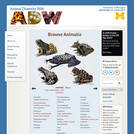
This site is a searchable encyclopedia of thousands of photos, descriptions, sound recordings, and other information about individual animal species. Find out about amphibians, arthropods, birds, fishes, insects, mammals, mollusks, reptiles, and sharks. Explore special features on mammals, skulls, and frog calls. Students are invited to contribute.
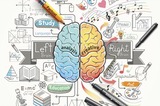
This course introduces students to the scientific study of the mind and behavior and to the applications of psychological theory to life. Topics include: research methods; biopsychology; lifespan development; memory; learning; social psychology; personality; and psychological health and disorders. This course will establish a foundation for subsequent study in psychology. Resources include: Video, Articles, and Class Activities.
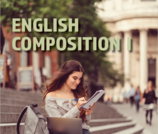
Media-rich textbook for an introductory English course. It covers the writing process, as well as descriptive, narrative, illustration, persuasion, and causal analysis essays.

This module features a step-by-step process to create an informative speech. It provides concise instructions supported by topical learning resources (textbook chapters, short online articles, brief videos).
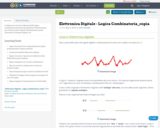
La dispensa tratta dei rudimenti della logica combinatoria partendo dal significato di livello logico per trattare le porte logiche fondamentali, quelle universali, le funzioni logiche, etc
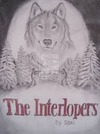
"The Interlopers" by Saki (H.H. Munroe) is a story that portrays the theme of hatred resulting in tragedy. This story also has several examples of situational irony which is the contrast between what is said or expected and what actually happens. Three examples of irony will be discussed and how they are significant to the theme. The examples are:1. The men die over something unimportant.2. The struggle for land ownership ends in a tragedy when nature takes their lives.3. The long running feud ended, but no one in the village/town could learn of that as both men died.

This is a cross curricular art project for 8th grade math students. Students are first introduced to what the Wheel of Theodorus is, ponder where they see it in the world around them and then instructed on how to create their own. When they have finished constructing their Wheel of Theodorus they are asked to creatively and colorfully turn it "into" something. Examples are given. After they Wheel of Theodorus is complete, students are then asked to measure all the sides lengths of the triangles in the wheel. They should quickly see that they can use the Pythagorean Theorem to do this and that it follows a predictable pattern. No ruler will be required for this part of the project!
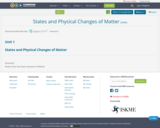
Study of the four basic elements of Matter
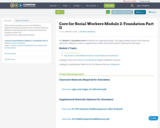
This resource provides access to the Northern California Training Academy's Core for Social Workers Module 2 training materials. To learn more about the Academy, please visit humanservices.ucdavis.edu/academy.
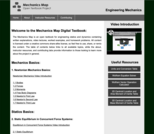
Open textbook in statics and dynamics for engineering undergraduates. Covers particles and rigid bodies (extended bodies), structures (trusses), simple machines, kinematics, and kinetics, as well as introductory vibrations. Includes text, videos, images, and worked examples (written and video).
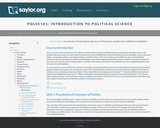
This survey course can be used by students who are looking to take just one general overview course or by those who want to go on to more advanced study in any of the subfields that comprise the political science discipline, such as American politics, comparative politics, international politics, or political theory. The goal of this course is to introduce the student to the discipline's concepts, terminology, and methods and to explore instances of applied political science through real world examples. Upon successful completion of this course, the student will be able to: Describe and evaluate the concepts of power, legitimacy, and authority; Discuss the origins and developments of the nation-state; Distinguish between traditional and behavioral approaches to the study of politics; Discuss general approaches to the study of politics, such as political philosophy, political systems theory, and political economy; Describe and discuss the political socialization process; Examine the nature of political participation from a comparative perspective; Discuss the nature of public opinion from a comparative perspective; Identify the different types of electoral systems and be able to assess the implications of those systems; Identify the role and functions of political parties; Identify the different types of party systems from a comparative perspective; Describe and evaluate the general principles of presidential and parliamentary political systems; Describe and compare the essential features of at least three governments of Western Europe; Identify and evaluate the principles of authoritarian and totalitarian governments; Discuss the concepts of political development and problems facing developing nations; Discuss and explain the origins and principles of democratic capitalism, democratic socialism, Marxist socialism, national socialism, fascism, and third world ideologies; Describe the origins, development, and principles of international law; Identify and assess the influence of major international organizations; Describe and analyze the causes of international conflict; Analyze current critical issues in international relationships. (Political Science 101)

Almost everywhere on the world, international migration is a hot topic. Most of the time the debate about migration is fierce and charged with prejudices and fears. At the political level, this has far-reaching consequences, ranging from electoral victories of populist right-wing parties to the increasing isolation policy of Europe and the United States. But what exactly is migration? What are its causes? And what are problems and opportunities?
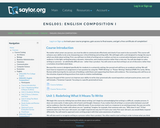
This course promotes clear and effective communication by sharpening critical thinking and writing skills. The first unit is designed to change the way in which students think about writing--as a conversation rather than a solitary act. The second unit focuses on academic writing and explores the PWR-Writing or Power-Writing Method (PWR Pre-Write, Write, Revise). The remaining units will focus on the minutiae of good writing practices, from style to citation methodology. Upon successful completion of this course, the student will be able to: Demonstrate mastery of principles of grammar, usage, mechanics, and sentence structure. Identify the thesis in another individual's essay. Develop a thesis statement, structure it in an introductory paragraph, and support it with the body of the essay. Organize ideas logically within an essay, deploying adequate transitional devices to ensure coherence, flow, and focus. Differentiate between rhetorical strategies and write with an awareness of rhetorical technique and audience. Differentiate between tones and write with an awareness of how tone affects the audience's experience. Demonstrate critical and analytical thinking for reading and writing purposes. Quote, paraphrase, and document the work of others. Write sentences that vary in length and structure. (English 001)
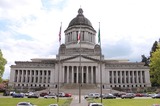
It is important to educate future voters about the issues, processes, and impacts of voting in elections. These resources include links to lesson plans, videos, games, and printables to assist teachers K—12 to promote civic participation and voting.
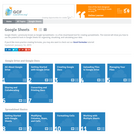
Learn how to use the free Spreadsheets application from Google Docs and Drive.
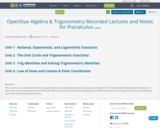
This resource is a collection of full hour-long lectures and accompanying notes covering most of chapters 6-10 of the OpenStax Algebra and Trigonometry book. The notes are provided in both .DOCX and .PDF format to accommodate downloading ease. Students should be encouraged to print notes and fill them out as they watch through the lectures.

This is a cross curricular art project for 8th grade math students. Students are first introduced to what the Wheel of Theodorus is, ponder where they see it in the world around them and then instructed on how to create their own. When they have finished constructing their Wheel of Theodorus they are asked to creatively and colorfully turn it "into" something. Examples are given. After they Wheel of Theodorus is complete, students are then asked to measure all the sides lengths of the triangles in the wheel. They should quickly see that they can use the Pythagorean Theorem to do this and that it follows a predictable pattern. No ruler will be required for this part of the project!
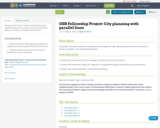
This project introduces students to parallel lines and angles through videos, practice exercises, simulations, hands-on activities, and student presentations.
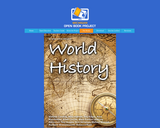
Using an inquiry based approach, Michigan high school students learn about World History from the fifth Era through today.